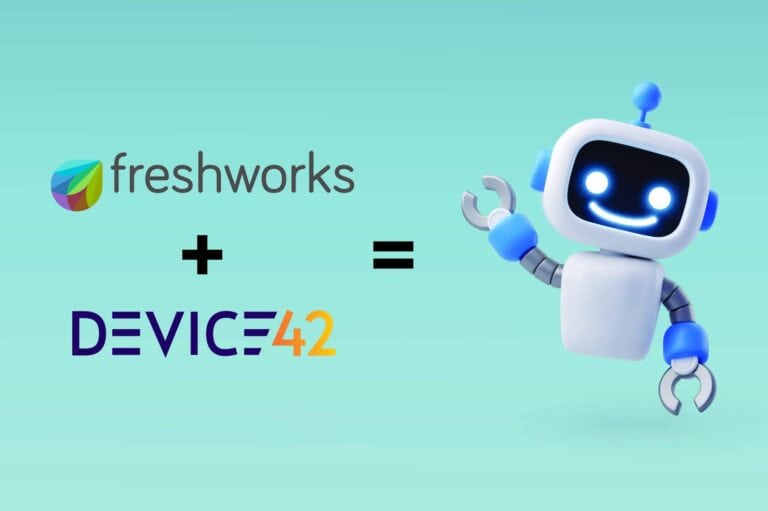On June 28, I have the honor of joining Rob Young, Senior Director of Product Marketing at Astound and former lead IT service management (ITSM) analyst at IDC, for a webcast. We’ll be discussing the impact of artificial intelligence (AI) and advanced automation on IT. I think it will be a lively and provocative 45 minutes. You can read more about it and register to attend, live or on demand, at https://hubs.ly/H0cz33Q0. (For those of you who don’t trust shortened links, that’s http://astound-4499063.hs-sites.com/june-webinar?utm_campaign=June%20Campaign&utm_source=michaeldortch.)
Table of Contents
ToggleIn preparation for this discussion, I began recalling and updating some relevant posts I’d written previously. (See “Align Collaboration, Communication, and Business Processes – In 12 Sentences!”) The following is updated from musings I originally postedin September 2011. As always, your thoughts and reactions welcome, as are any specific questions or ideas you’d like me to consider for the June 28 event.
Do You Know What Your Business Knows and Doesn’t Know?
What does your business know? About itself, its competitors, the forces shaping its key markets, what its customers think of it and its competitors, or how its customers make purchase decisions?
How well does your business use what it knows to improve how it does business? How prepared is your business to turn what it knows into business benefit, today and tomorrow?
Many business decision makers have no idea how to begin answering the questions above, but it’s not their fault. Business knowledge – information framed in a relevant, actionable business context – is often undervalued and poorly managed. If it’s managed at all. At the smartest companies, the business knows what it knows and how best to use that knowledge.
Those two things define everything significant about every modern business. So taking a holistic approach to the collection, curation and leverage of business knowledge can maximize the agility, responsiveness and competitiveness of any business. Such an approach is what I mean by business knowledge optimization(BKO).
Business Knowledge Optimization: Does Your Business Need It?
Does your business need Business Knowledge Optimization? Here are some signs that it does.
- Your competition is consistently “eating your lunch.”
- Your customers are upset, and you’re not sure why, or how many are upset, or what to do about it.
- Your partners are wary or confused about your road map for the future of your relationships with them.
- There are no clearly defined or well-enforced policies, practices, or processes in place for collecting and leveraging knowledge consistently across the organization.
- There are no clearly defined or well-enforced policies, practices, or processes in place for ensuring that business-critical knowledge is retained when those who know it leaves the business. (You might know this as “institutional memory.”)
Business Knowledge Optimization: How to Get It
What are the key elements of Business Knowledge Optimization? They include but are not limited to the following.
- Any and all collaboration and information-sharing tools your business uses today.
- Any and all information repositories (such as databases) and the tools used to manage them, both premise- and cloud-based.
- Any and all solutions used by your business for backup, recovery or remote storage of business-critical information.
- Any and all tools and services used to capture, document or manage business processes.
- Any and all information collected regarding IT user experiences and resource usage, quantitative and anecdotal.
- Any and all information collected or provided by any and all tools that touch or are touched by any colleagues, customers, partners, prospects or others who matter to your business.
Each of these represents a potential starting point for your journey toward Business Knowledge Optimization. However you begin, success also requires a level of process consistency and enforcement that is both ubiquitous and non-disruptive to users and business operations. This is because your business needs to capture as much information as it can about and from as many sources as it can to ensure that its knowledge is accurate, complete, timely, and actionable.
At some companies this will mean revisiting almost everything about the processes that drive the business. At some companies, it will mean visiting these operational areas for the first time.
Fortunately, there is no need to “boil the ocean.” Business Knowledge Optimization can be pursued and achieved one project, team, or department at a time. Initial successes can then be replicated and scaled as resources and opportunities permit.
More and better tools and resources are beginning to appear as well. Evolving artificial intelligence (AI) and machine learning (ML) technologies are enabling solutions accessible to almost any company that can help with every element of Business Knowledge Optimization.
All you need to know now is how best to get started…






